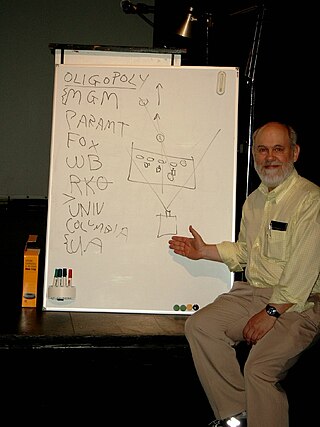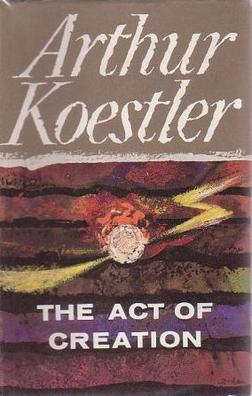Film theory is a set of scholarly approaches within the academic discipline of film or cinema studies that began in the 1920s by questioning the formal essential attributes of motion pictures; and that now provides conceptual frameworks for understanding film's relationship to reality, the other arts, individual viewers, and society at large. Film theory is not to be confused with general film criticism, or film history, though these three disciplines interrelate.
The following outline is provided as an overview and topical guide to linguistics:

Social science is one of the branches of science, devoted to the study of societies and the relationships among individuals within those societies. The term was formerly used to refer to the field of sociology, the original "science of society", established in the 19th century. In addition to sociology, it now encompasses a wide array of academic disciplines, including anthropology, archaeology, economics, human geography, linguistics, management science, communication science and political science.
Semiotics is the systematic study of sign processes (semiosis) and meaning making. Semiosis is any activity, conduct, or process that involves signs, where a sign is defined as anything that communicates something, usually called a meaning, to the sign's interpreter. The meaning can be intentional, such as a word uttered with a specific meaning; or unintentional, such as a symptom being a sign of a particular medical condition. Signs can also communicate feelings and may communicate internally or through any of the senses: visual, auditory, tactile, olfactory, or gustatory (taste). Contemporary semiotics is a branch of science that studies meaning-making and various types of knowledge.

Literary theory is the systematic study of the nature of literature and of the methods for literary analysis. Since the 19th century, literary scholarship includes literary theory and considerations of intellectual history, moral philosophy, social philosophy, and interdisciplinary themes relevant to how people interpret meaning. In the humanities in modern academia, the latter style of literary scholarship is an offshoot of post-structuralism. Consequently, the word theory became an umbrella term for scholarly approaches to reading texts, some of which are informed by strands of semiotics, cultural studies, philosophy of language, and continental philosophy.

An academic discipline or field of study is a branch of knowledge, taught and researched as part of higher education. A scholar's discipline is commonly defined by the university faculties and learned societies to which they belong and the academic journals in which they publish research.

In psychology, cognitivism is a theoretical framework for understanding the mind that gained credence in the 1950s. The movement was a response to behaviorism, which cognitivists said neglected to explain cognition. Cognitive psychology derived its name from the Latin cognoscere, referring to knowing and information, thus cognitive psychology is an information-processing psychology derived in part from earlier traditions of the investigation of thought and problem solving.
Narratology is the study of narrative and narrative structure and the ways that these affect human perception. It is an anglicisation of French narratologie, coined by Tzvetan Todorov. Its theoretical lineage is traceable to Aristotle (Poetics) but modern narratology is agreed to have begun with the Russian formalists, particularly Vladimir Propp, and Mikhail Bakhtin's theories of heteroglossia, dialogism, and the chronotope first presented in The Dialogic Imagination (1975).

Gregory Paul Currie FAHA is a British philosopher and academic, known for his work on philosophical aesthetics and the philosophy of mind. Currie is Professor of Philosophy at the University of York and Executive Editor of Mind & Language.

David Jay Bordwell is an American film theorist and film historian. Since receiving his PhD from the University of Iowa in 1974, he has written more than fifteen volumes on the subject of cinema including Narration in the Fiction Film (1985), Ozu and the Poetics of Cinema (1988), Making Meaning (1989), and On the History of Film Style (1997).

The following outline is provided as an overview of and topical guide to psychology:

Anecdotal cognitivism is a method of research using anecdotal, and anthropomorphic evidence through the observation of animal behaviour.
Darwinian literary studies is a branch of literary criticism that studies literature in the context of evolution by means of natural selection, including gene-culture coevolution. It represents an emerging trend of neo-Darwinian thought in intellectual disciplines beyond those traditionally considered as evolutionary biology: evolutionary psychology, evolutionary anthropology, behavioral ecology, evolutionary developmental psychology, cognitive psychology, affective neuroscience, behavioural genetics, evolutionary epistemology, and other such disciplines.
Jason Mittell is a professor of American studies and film and media culture at Middlebury College whose research interests include the history of television, media, culture, and new media. He is author of three books, Genre and Television (2004), Television and American Culture (2009), and Complex TV: The Poetics of Contemporary Television Storytelling, and co-editor of How To Watch Television.
Communicology is the scholarly and academic study of how people create and use messages to affect the social environment. Communicology is an academic discipline that distinguishes itself from the broader field of human communication with its exclusive use of scientific methods to study communicative phenomena. The goals of these scientific methods are to create and extend theory-based knowledge about the processes and outcomes of communication. Practitioners in the communicology discipline employ empirical and deductive research methods, such as cross-sectional and longitudinal surveys, experiments, meta-analyses, and content analyses, to test theoretically-derived hypotheses. Correlational and causal relationships between communication variables are tested in these studies.

The Act of Creation is a 1964 book by Arthur Koestler. It is a study of the processes of discovery, invention, imagination and creativity in humour, science, and the arts. It lays out Koestler's attempt to develop an elaborate general theory of human creativity.

Some of the research that is conducted in the field of psychology is more "fundamental" than the research conducted in the applied psychological disciplines, and does not necessarily have a direct application. The subdisciplines within psychology that can be thought to reflect a basic-science orientation include biological psychology, cognitive psychology, neuropsychology, and so on. Research in these subdisciplines is characterized by methodological rigor. The concern of psychology as a basic science is in understanding the laws and processes that underlie behavior, cognition, and emotion. Psychology as a basic science provides a foundation for applied psychology. Applied psychology, by contrast, involves the application of psychological principles and theories yielded up by the basic psychological sciences; these applications are aimed at overcoming problems or promoting well-being in areas such as mental and physical health and education.

Psychology encompasses a vast domain, and includes many different approaches to the study of mental processes and behavior. Below are the major areas of inquiry that taken together constitute psychology. A comprehensive list of the sub-fields and areas within psychology can be found at the list of psychology topics and list of psychology disciplines.
The social sciences are the sciences concerned with societies, human behaviour, and social relationships.







